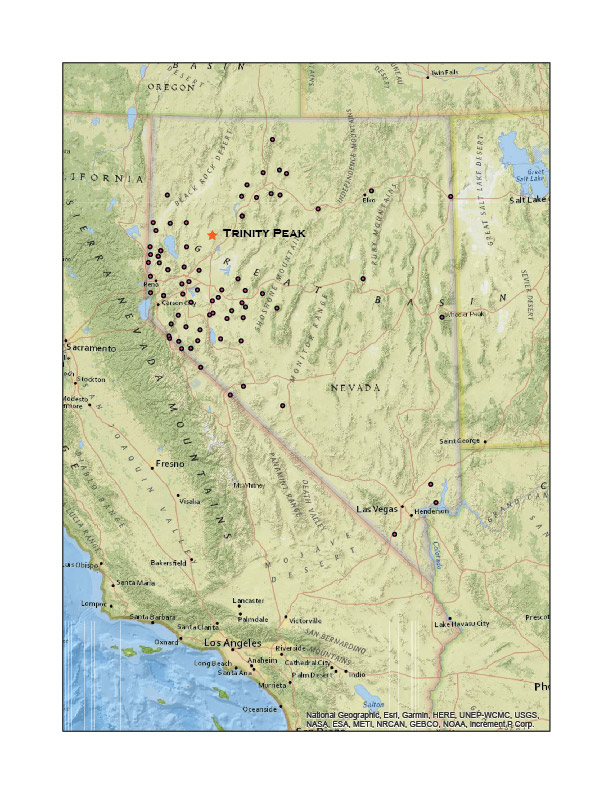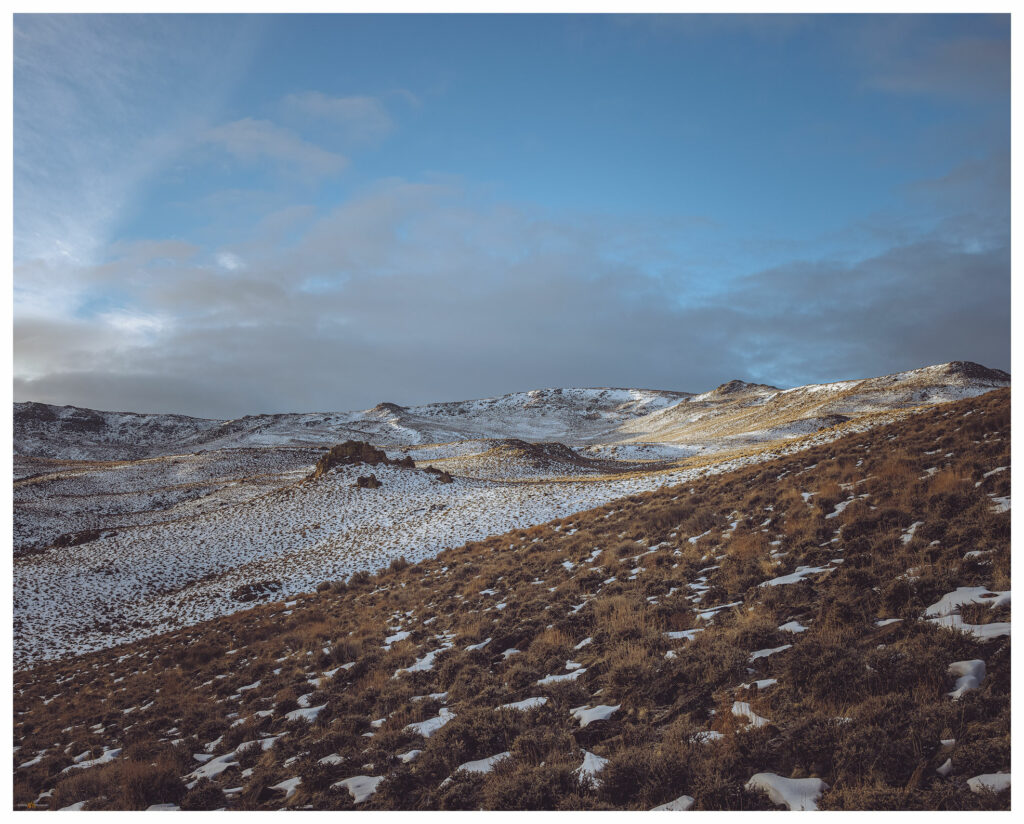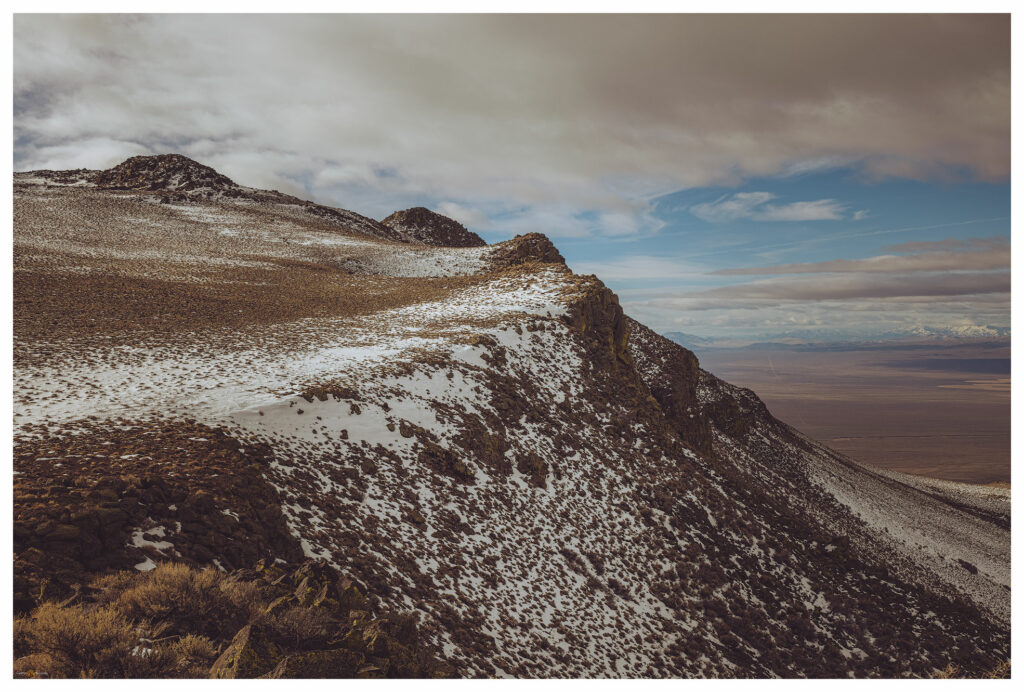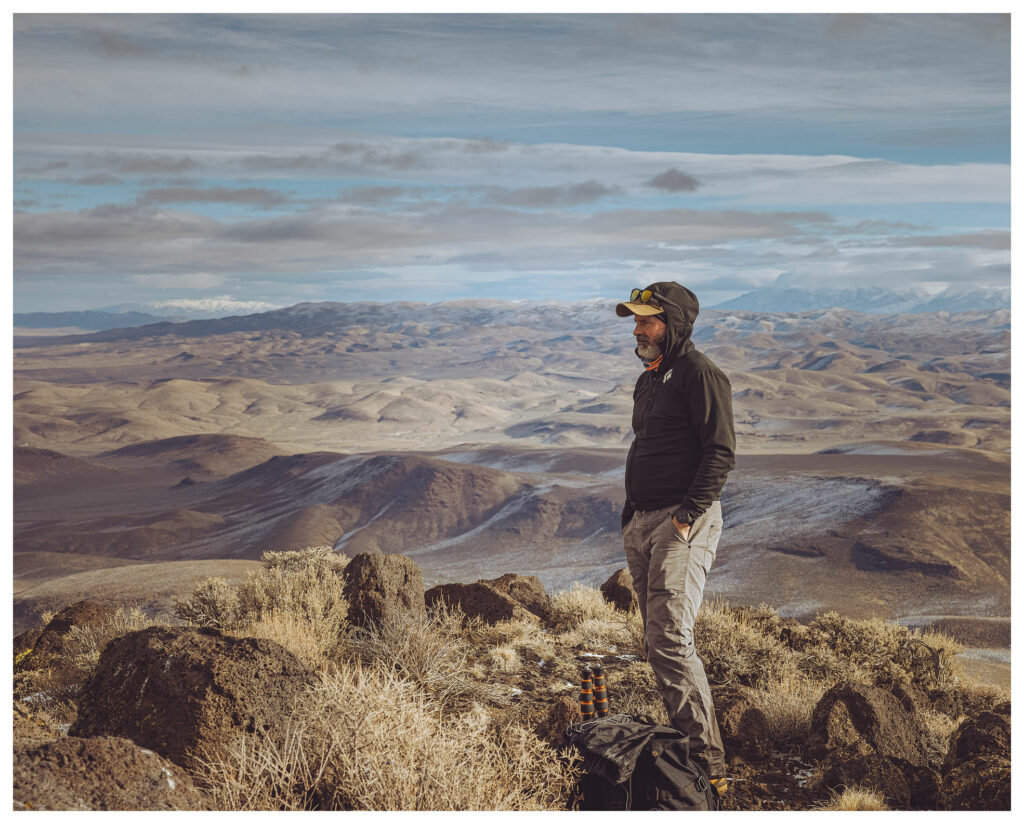I have a long-held goal, contrived in the early 1990s, of climbing the high points of Nevada’s named ranges. I have known a few who claim to have achieved the feat, and I do not doubt their success. Although I doubt I’ll reach the goal of every highpoint summit, the goal has always been motivation (or, an excuse) to get into the Nevada outback and experience places I might not visit otherwise.
My successes have been limited lately, but it is time to ‘re’-turn in the direction of Nevada summits, those obvious and the many obscure. Maybe this is a resolution for the New Year, and 2021 is probably a good time for a reset. Besides, the outback is the muse to my photography-geoarchaeology-trail running pursuits that form most days. Although the goal may be unobtainable — I have catalogued 352 named ranges, mountains, and stand-alone hills, and several rest behind military fences, it gets us into the landscape where the interplay of art and science is always at-hand. And, it is just plain fun; let’s keep going…
A break in the weather called for a summit day, choosing an unclimbed range within, say, a three-hour drive of StoneHeart. Trinity Peak is the high point of a volcanic range rising in generally rolling hills west of the Humboldt River. Ragged Top has some interesting craggy outcrops, but it stands a couple hundred feet lower at the southern end of the range.
We left the interstate at Lovelock, turning west on the Hwy 399 toward Trinity Pass and the Eagle Picher Mine at Seven Troughs Road. Clouds hung low over the range but it looked a good morning for a walk. The two-tracks away from the main road were slick and slimey; it was warm enough to melt but cold enough to maintain a general snowcover. I immediately realized my gaiters were still packed at home. The snow was not at all deep, but occasional steps would bring a good batch of snow and mud over the boot-tops.
We climbed easily across lower slopes, intersecting drainages and then turning higher to get a snowless ridge or outcrop. We did not rush; the temperature was perfect and there was practically no wind. One of those good days in the Nevada outback.
The Trinity Range is a north-south-trending range — like most in Nevada’s Basin and Range province — that bounds the expansive Granite Springs Valley to the west and drops to broad fans and the Humboldt River to the east. It is the western most range in a cluster of small mountains and hills in the ‘Blue Wing Triangle’ south of the Black Rock Desert, east of Pyramid Lake, and north and east of the Humboldt River, where vast dry basins are cut by often steeply faulted hills. There are few springs or other water sources. Pronghorn are common, as are soaring raptors.
Today, however, it is quiet and only a few of the little brown birds accompany us. We hit one false summit at about mile two. From this outcrop the summit rose from a boulder-strewn tableland. Yellow and orange lichen decorated the way.
We skirted the snow fields to keep our feet dry and enjoyed the casual walk. Our paths split to explore minor outcrops below the summit. Darren was on top first, noting the typical survey lathes and guy-wires from historic-era mapping efforts. A brass cap marked a prominent boulder.
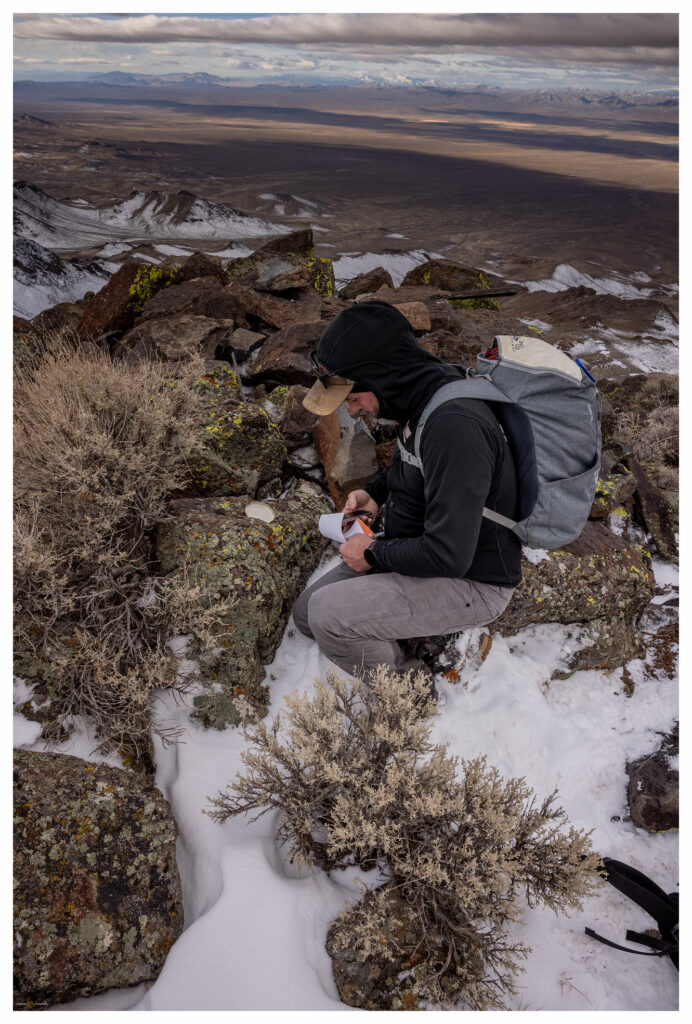
We planned future excursions into the ‘Blue Wing Triangle’. This is an easy day trip and better overland excursion area where six or seven additional highpoints remain on my list. Winter excursions remain possible and it is an all-season area in general, although watching for the swift changes of any winter storm is critical. Public lands grazing is most common activity in the ‘triangle’ but encountering others is relatively rare.
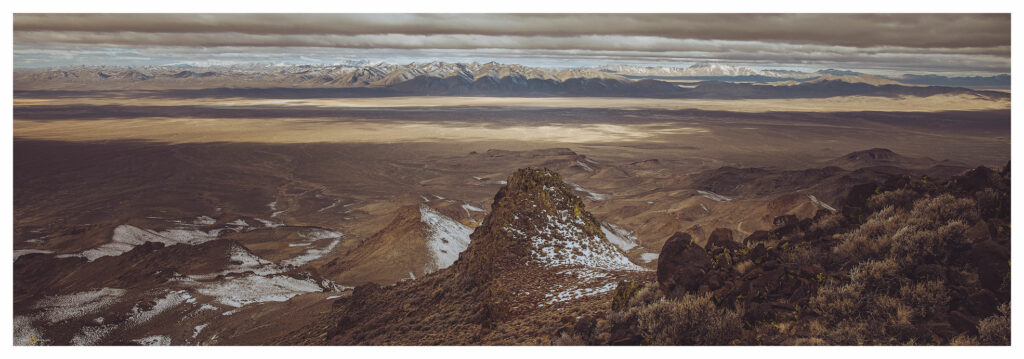
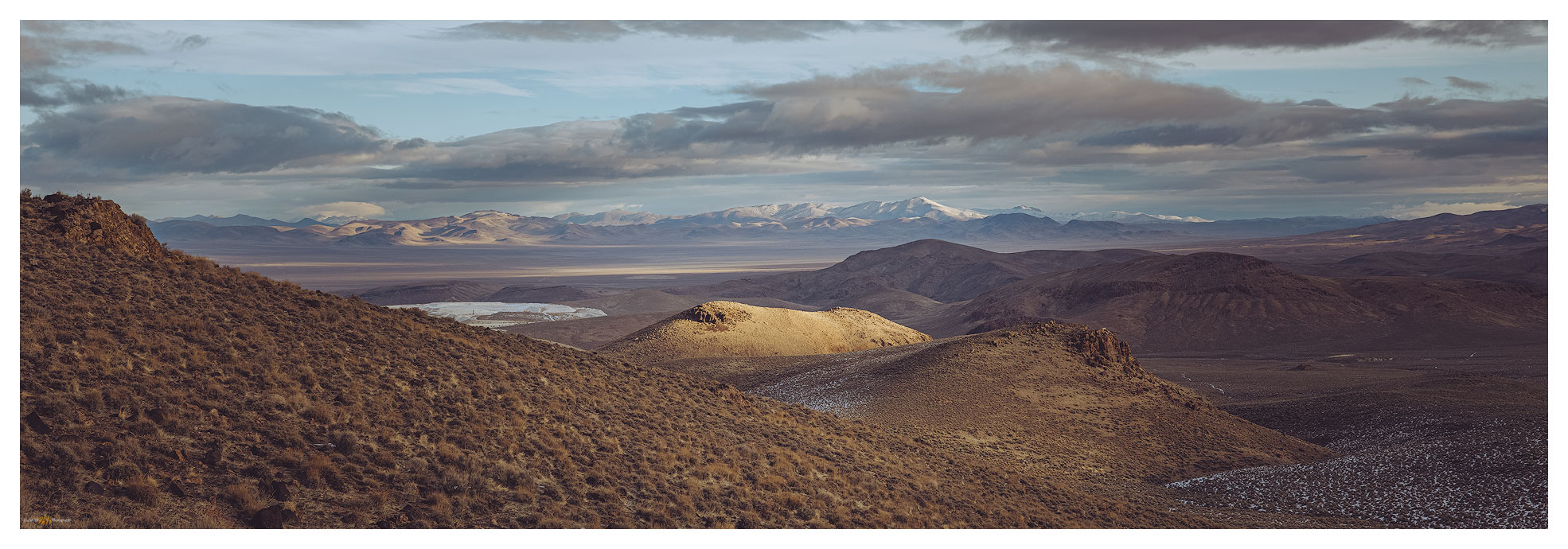
Please remember to tread lightly and respect the resources and beauty of your public lands. Respect private lands, leave the gates as you find them. Pack it out. Nature First,
A good start to 2021 and perfect for an easy Sunday morning adventure. We have plenty to look forward to. Maybe I can put a dent in the long list of high points yet to explore, one at a time, step after step.
Keep going.
Please respect the natural and cultural resources of our public lands.
